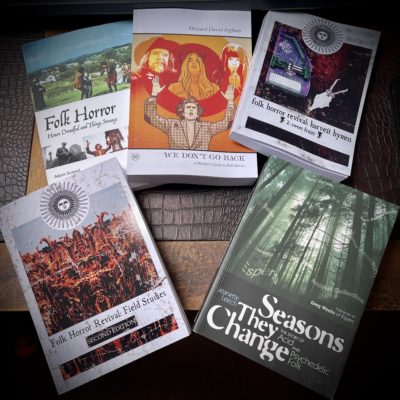

If I go right back to the beginning of my interest in magic and the occult I can see myself in the school library looking at books on mythology and the supernatural. I loved those old black and white photos of Victorian mediums leaking ectoplasm with disembodied faces peering over their shoulders. I loved the stories of the Loch Ness monster, Ghosts, Poltergeists, the Yeti, Bigfoot, the list goes on, and of course, I loved the books on Magic and Folklore too. Combine that with a passion for rock music and the songs of Black Sabbath and Led Zeppelin and I think you have a typical teenager from the 70s seeking a connection with something ‘other’ than the mundane existence of school and bullies.
A few years on and I’m awake, every Saturday night, for the horror double-bill. The first was an old black and white classic, the second a more up to date Hammer flick. I loved them all, but often couldn’t sleep after watching them – that was fine and part of the deal. Over the years there have been many genres within the main scope of the horror film – there is no doubt that horror very much lost its way in the 80s with the advent of home video, and I lost interest then too. But there has always been one horror genre that I have always loved, and that is Folk Horror, and over recent years there has been a real revival.
So what is Folk Horror?
The term itself is very new, coined only in recent years. The three films, the ‘unholy trinity’ as they have become known were not created in parallel, or connected in any way. They span from 1968 to 1973 and are Witchfinder General (1968), Blood on Satan’s Claw (1970) and The Wicker Man (1973). There could well be an argument that there is a fourth film too and that is Night of the Demon (1957). What brings these films together is magic, the occult, but the gleaming thread is that there is something out in the fields, something still held by some cut-off rural communities as a belief in the Old Ways.
I can see that same energy in some of the children’s programs I saw growing up too. The Owl Service, Sky, Children of the Stones, Paperhouse, even some episodes of Doctor Who, Rupert Bear and Bagpuss. There was a sense that by moving out of the countryside and into towns and cities during the Industrial Revolution we had left something behind. Something important. Something that others who had remained in hidden small rural villages still remembered. And the truth is that young boy, searching through those library books, watching those old films, and seeing The Wicker Man for the first time was also looking for that lost connection to the land. It’s that feeling that led me to explore Magic, Witchcraft, Paganism and Druidry, a love and Path that continues to this day.
Folk Horror takes that disconnection with the land and the Old Ways and moves it one step further to a darker conclusion. For most of the film The Wicker Man, we are presented with an island community that holds true to the Old Ways. I’m absolutely sure I’m not the only Pagan who has watched that film and yearned for a community like that. Folk music, free love and expression, respect and connection to the land and all things that grow. Great. It’s really only when things are pushed that one darker step further that the film shifts into the realm of horror.
When we look at Folk Horror films and books the narrative is often there is a place or a people who still revere the Old Ways, the protagonist comes from a larger town where reason/logic/Christianity rule and is threatened by the things they don’t understand, so therefore what the ‘other’ believes must be evil and stamped out. When we look at the current revival of Folk Horror we can see the same things being played out, and I think it is the same underlying energy that birthed the Folk Horror of the 70s, and the resurgence now. In the 70s it was the threat of Nuclear War, now it is the threat of Climate Change.
It is our very survival.
The lives we lead are built around modern human constructs. Cities, jobs, finance, technology, media, all of it. When we want food we go to the supermarket or order a delivery and nicely packaged cuts of meat arrive that are almost unrecognisable from the animal who gave its life. We fly in produce from all over the world so we can have food that is out of season. Look, I’m not judging here. These are facts. As a species, we seem to have utterly forgotten that we too are animals and a part of the living biodiversity of this world. Folk Horror can remind us that Nature isn’t all peace and love, it can be red in tooth and claw. It reminds us that even if we hold animistic beliefs, the Spirit of the Field has its own agenda, its own life and we need a relationship with that Spirit. We can’t just keep ignorantly ploughing, planting, adding fertilizer forever.
Folk horror can remind us that we are not in control, and that is the horror part – we humans like to feel we are in control. The genre suggests that there was wisdom in the past, that the Old Ways, folk traditions, and those who lived their lives close to the land somehow knew more, something we have forgotten. The stories then take that to a dark conclusion that to me is pure entertainment, exaggeration, hype and sensationalism. However, the Journey to those final moments can remind us of those forgotten things.
So I’m right in the middle of visiting these old lovers. A friend suggested that I’m ‘going home again’, and it does indeed feel that way. So many of my songs are about the Old Ways and Folklore. The pandemic and what it has caused shifted my attention, as it did for so many of us for a while, but I am purposefully shifting it back to what drew me to this Path all those years ago.
Hello my love.
Come in.
Have a seat.
Tell me about Corn Dollies, and the Wolf in the Corn.
Is that the sound of Morris Bells I hear, and the taste of woodsmoke in the air..?
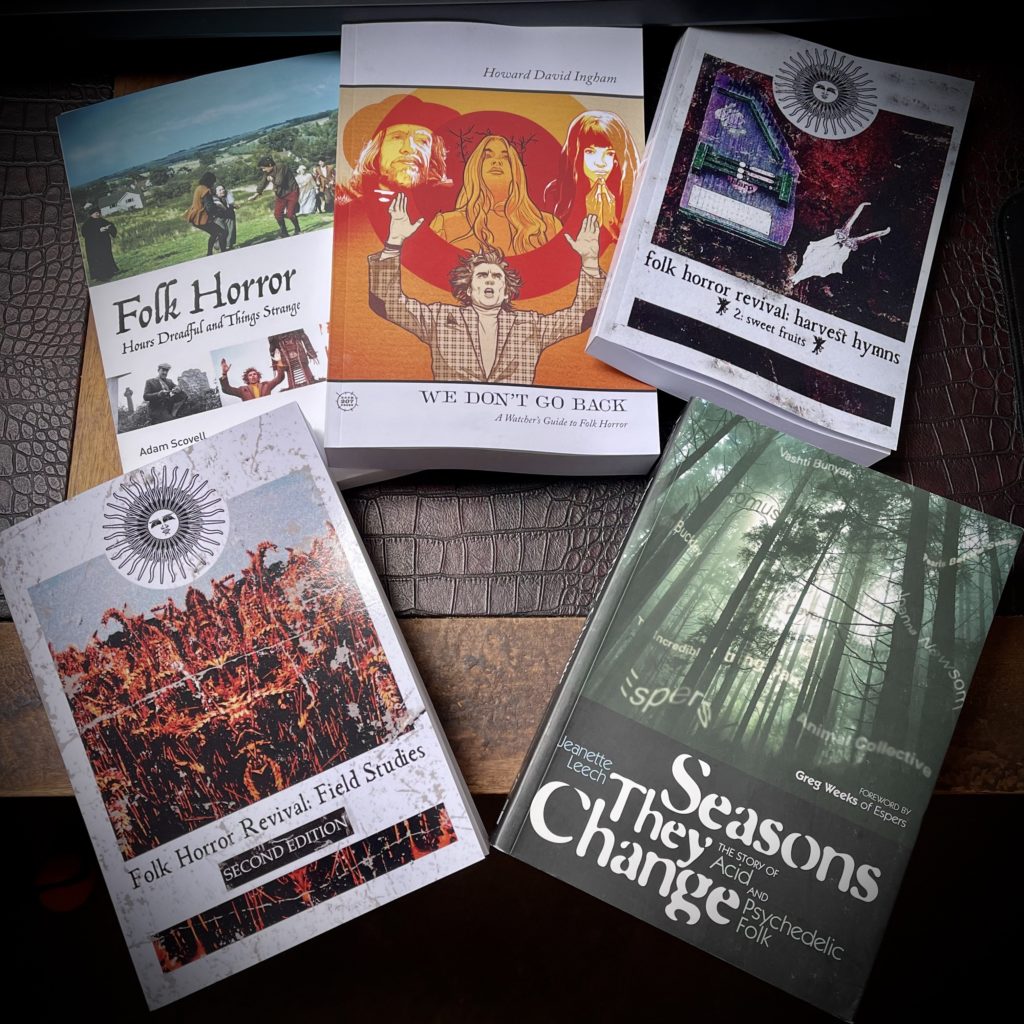
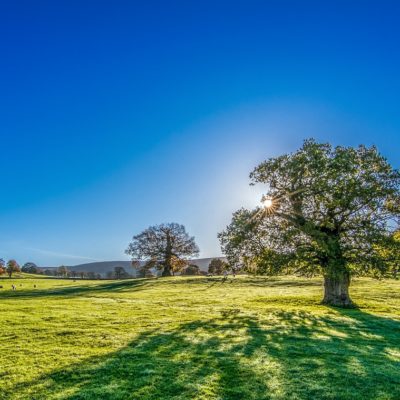
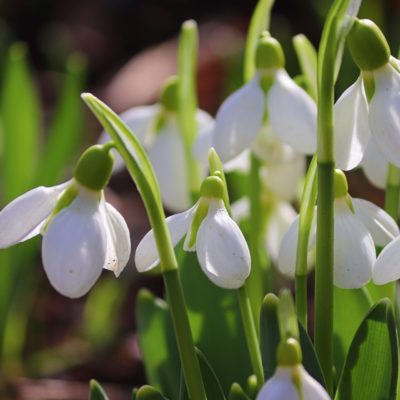
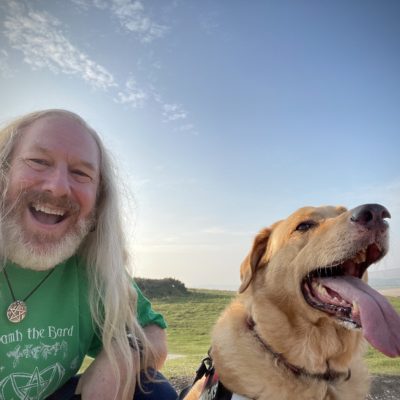
This pagan background is also reflected in books. See ” The Dark is Rising” series, by Susan Cooper.
First published in 1965, as a series of five books ( written ostensibly for children, but very readable) paperback.
A Quest mythical narrative with magic, folk lore, witchcraft and a wonderful sense of atmosphere. Highly recommended.
This should be filed under the heading of “No Shit.” I nodded the whole way through.
There are actually pagan communities who live the old ways; Circle Sanctuary for one, Lothlorien for another. And of course the sadly fictional Stonewylde.
I am a farmer’s daughter, he was a farmer’s son, so earth and sky run in my DNA. The magic started for me when I discovered Greek mythology. Jesus didn’t know it, but He lost me that day! I wanted to be Athena! Then came the TV show, Dark Shadows and my first tarot deck. I was born with the Sight, but I learned so much by the time I was 16. A baby witch was born!